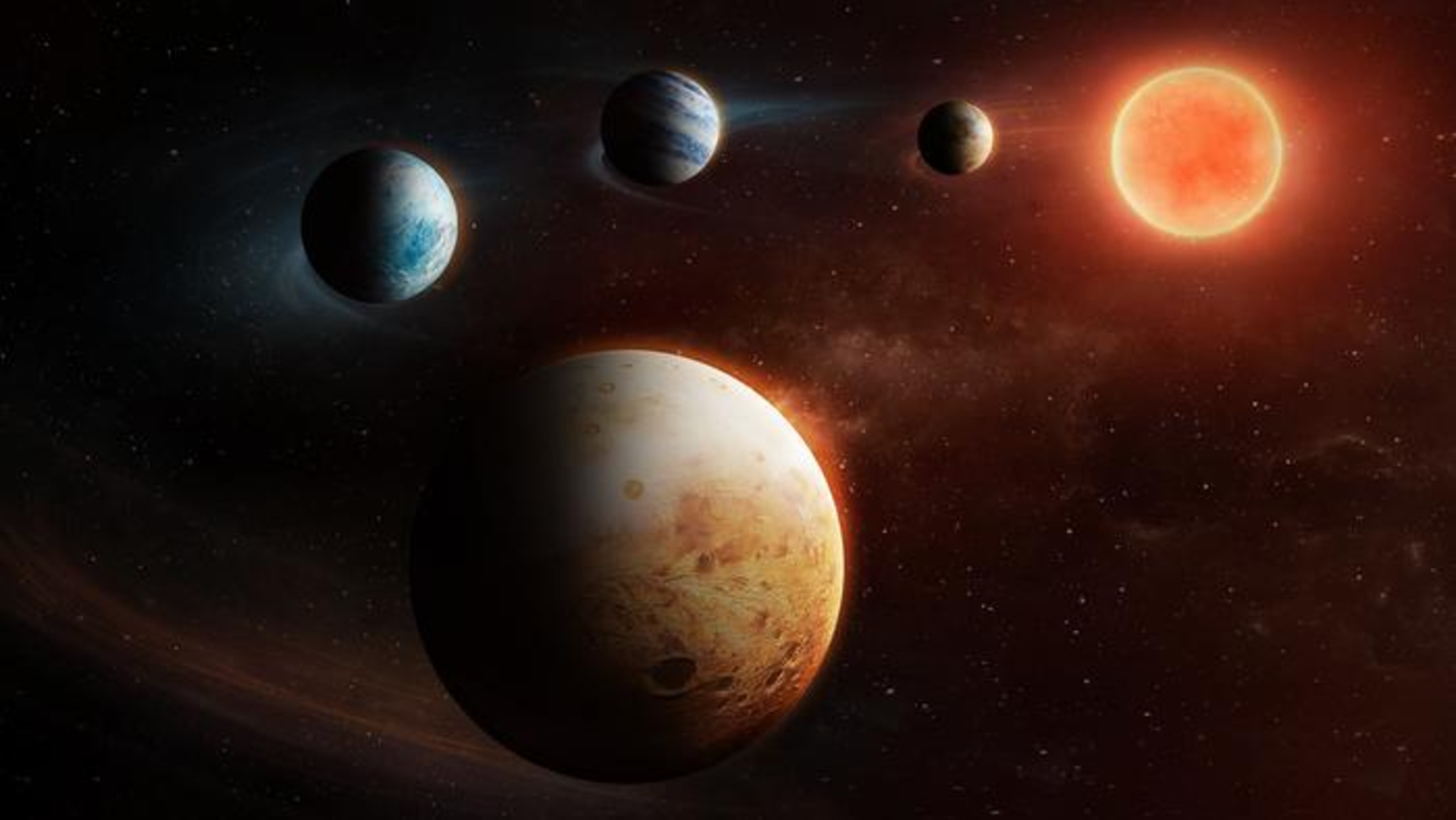
Get the world’s most fascinating discoveries delivered straight to your inbox.
You are now subscribed
Your newsletter sign-up was successful
Want to add more newsletters?

Delivered Daily
Daily Newsletter
Sign up for the latest discoveries, groundbreaking research and fascinating breakthroughs that impact you and the wider world direct to your inbox.

Once a week
Life's Little Mysteries
Feed your curiosity with an exclusive mystery every week, solved with science and delivered direct to your inbox before it's seen anywhere else.

Once a week
How It Works
Sign up to our free science & technology newsletter for your weekly fix of fascinating articles, quick quizzes, amazing images, and more

Delivered daily
Space.com Newsletter
Breaking space news, the latest updates on rocket launches, skywatching events and more!

Once a month
Watch This Space
Sign up to our monthly entertainment newsletter to keep up with all our coverage of the latest sci-fi and space movies, tv shows, games and books.

Once a week
Night Sky This Week
Discover this week's must-see night sky events, moon phases, and stunning astrophotos. Sign up for our skywatching newsletter and explore the universe with us!
Join the club
Get full access to premium articles, exclusive features and a growing list of member rewards.
When Prince William revealed he was taking two weeks paid paternity leave, he sent a strong message: Dads are critical during a newborn's first few weeks of life.
A growing body of research suggests that paternity leave can help fathers gain confidence in their skills and strengthen family bonds.
Paternity leave enables fathers to "learn the rhythms of infant life and how to be a parent, how to be a father, how to take care of babies," said Scott Coltrane, a sociologist at the University of Oregon.
And involvement during the early weeks may create more involved dads years down the line. [6 Ways Dads Win at Parenting]
However, Prince William's weekly $210 check is a perk that many American men could only dream about. The United States has no federal paid paternity leave, and only about 13 percent of companies offer paid time off for dads. For many fathers hoping to report for baby duty, that financial hurdle can be insurmountable, experts say.
Building family
Paternal leave not only increases a father's sense of confidence and comfort with parenting, it can benefit the whole family. Having men at home early on can help women establish breast-feeding and can also increase a man's sensitivity to his partner's needs, strengthening family bonds as a whole, Coltrane said.
Get the world’s most fascinating discoveries delivered straight to your inbox.
"The father's sensitivity to the mother during the critical, early infancy is very important, and one of the best ways to learn that is to be on site," Coltrane told LiveScience.
In addition, paternity-leave takers tend to be more confident in child-care duties and more involved in their children's lives years later, he said. (Of course, it can be tricky to tease out confounding factors, such as the likelihood that men who take paternity leave tended to be more involved dads in the first place.)
Family-friendly policies
Several Scandinavian countries, such as Norway and Sweden, are banking on the idea that those first few weeks make a big difference for families. [10 Scientific Tips for Raising Happy Kids]
They have implemented a use-it-or-lose-it paternity leave program that has led to a large majority of men taking at least some time off, said Ingeborg Solli, an economist at the University of Stavanger in Norway.
The logic behind those programs is that "routines in the family are very much set in those early years," Solli said. "With the paternity quota, you provide the father with the opportunity to really take part in the family, and you also secure that he takes a larger share of responsibility at home from very early."
Early evidence suggests those policies are having an effect. After paternity leave policies were implemented in Norway, men had slightly lower earnings when their children were age 5, according to a study by Solli and her colleagues to be published in a forthcoming issue of journal Demography.
It's not clear why, but men may be passing up management positions or working fewer hours to spend more time at home, Solli said.
"It could be a stronger father-child attachment, or it could be a more equal division of responsibilities at home," Solli told LiveScience.
Policy lag
Until the late 1970s, men took paternity leave so rarely that social science surveys never bothered to ask about it, Coltrane told LiveScience.
But over the last 10 to 20 years, there's been a radical shift in men and women's attitudes toward parenting responsibilities. About half of working men have trouble juggling work and family responsibilities, according to a 2013 survey by Pew.
U.S. policy, however, hasn't caught up with public opinion.
Federal regulations provide only for unpaid paternity leave, and only to employees who work for companies with more than 50 employees.
Only two states — California and New Jersey — provide guaranteed paid family leave for dads, said Vicky Shabo, the director of work and family programs at the National Partnership for Women and Families, an advocacy organization promoting family-friendly policies.
The policies in these states have led to more men taking time off to be with their little ones, Shabo said.
Prince William may not need his paternity leave check, but ordinary dads often can't afford to take unpaid paternity leave.
"Our public policies are completely out of touch with how families are living and working today, and what new families and caregivers need," Shabo told LiveScience.
Follow Tia Ghose on Twitter and Google+. Follow LiveScience @livescience, Facebook & Google+. Original article on LiveScience.com.

Tia is the editor-in-chief (premium) and was formerly managing editor and senior writer for Live Science. Her work has appeared in Scientific American, Wired.com, Science News and other outlets. She holds a master's degree in bioengineering from the University of Washington, a graduate certificate in science writing from UC Santa Cruz and a bachelor's degree in mechanical engineering from the University of Texas at Austin. Tia was part of a team at the Milwaukee Journal Sentinel that published the Empty Cradles series on preterm births, which won multiple awards, including the 2012 Casey Medal for Meritorious Journalism.
 Live Science Plus
Live Science Plus










